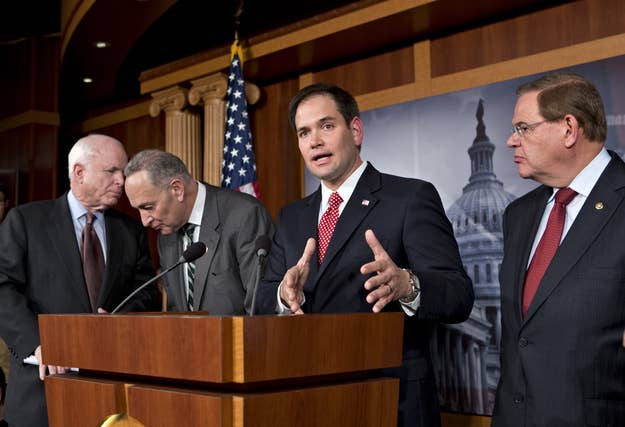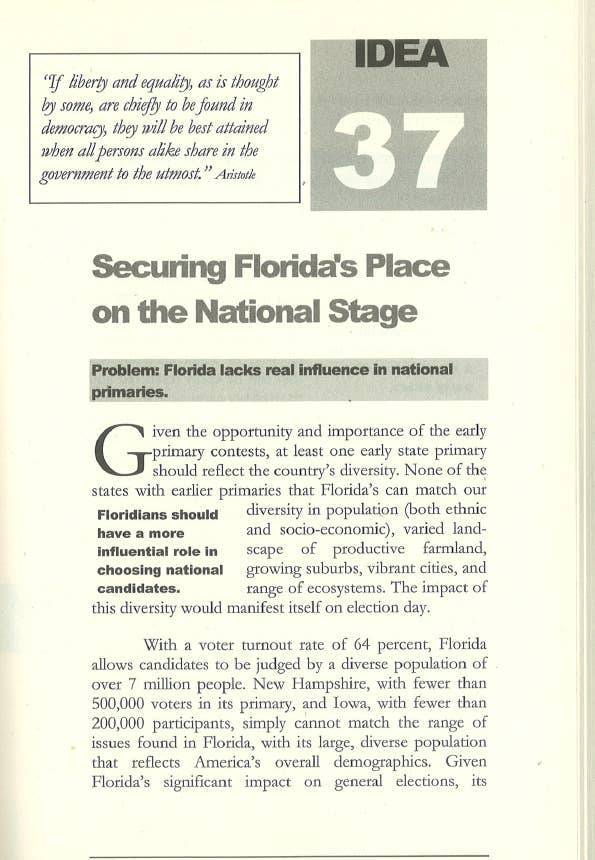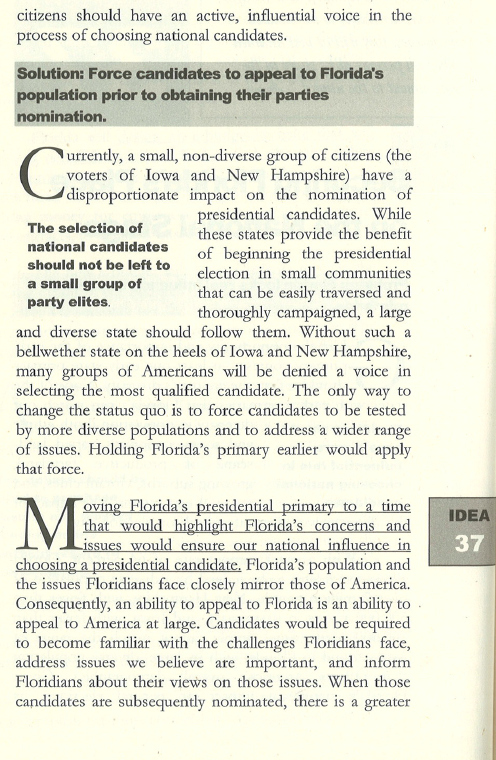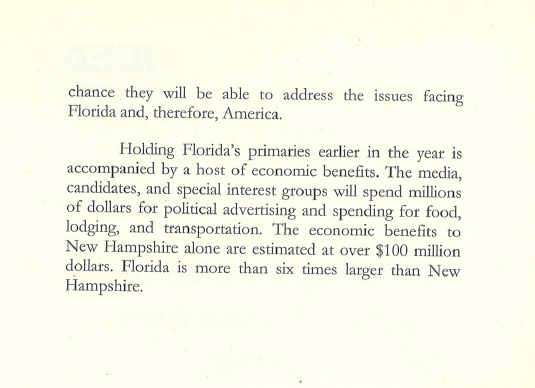
Florida Senator Marco Rubio won a political victory this year by persuading Florida's state legislature to move back to the presidential primary. The move will restore Florida's delegate count, and its presidential clout, which were cut by the Republican National Committee after the state moved up its primary to become more prominent in the nomination process in 2008.
But in Rubio's 2006 book 100 Innovative Ideas for Florida's Future, screenshots of which were provided to BuzzFeed by the Democratic SuperPAC American Bridge, Rubio wrote spent an entire chapter making the case for moving up Florida's primary.
Currently, a small, non-diverse group of citizens (the voters of Iowa and New Hampshire) have a disproportionate impact on the nomination of presidential candidates. While these states provide the benefit of beginning the presidential election in small communities that can be easily traversed and thoroughly campaign, a larger and diverse state should follow them. Without such a bellwether state on the heels of Iowa and New Hampshire, many groups of Americans will be denied a voice in selecting the most qualified candidate. The only way to change the status quo is to force candidates to be tested by more diverse populations and to address a wider range of issues. Holding Florida's primary early would apply that force.
In another section, Rubio argued that moving up Florida's primary would ensure the state's issue are covered on a national level.
Moving Florida's presidential primary to a time that would highlight Florida's concerns and issues would ensure our national influence in choosing a presidential candidate. Florida's population and the issues Floridians face closely mirror those of America. Consequently, an ability to appeal to Florida is an ability to appeal to America at large. Candidates would be required to become familiar with the challenges Floridians face, address issues we believe are important, and inform Floridians about their views on those issues. When those candidates are subsequently nominated, there is a greater chance they will be able to address the issues facing Florida, and therefore, America.
Rubio also mentioned the potential economic benefits of an early primary.
"Holding Florida's primaries earlier in the year is accompanied by a host of economic benefits. The media, candidates, and special interest groups will spend millions of dollars for political advertising and spending for food, lodging and transportation. The economic benefits to New Hampshire alone are estimated at over $100 million dollars. Florida is six times larger than New Hampshire."
This year's primary move will most likely restore Florida's prominence in the presidential primary in 2016. Florida originally made the move to increase the states clout in the nomination process, only to have state penalized delegates for the action.
A spokesman for Rubio didn't return a request for comment but Rubio's state director told The Miami Herald the move wasn't motivated by the Senator's future in a possible presidential election, noting Democrats support the idea as well.
"We would go from being the third-largest delegation to being the smallest," Todd Reid, Rubio's state director said, referring to how the state would get only 12 delegates instead of 99 if the state's primary date remained in place.



